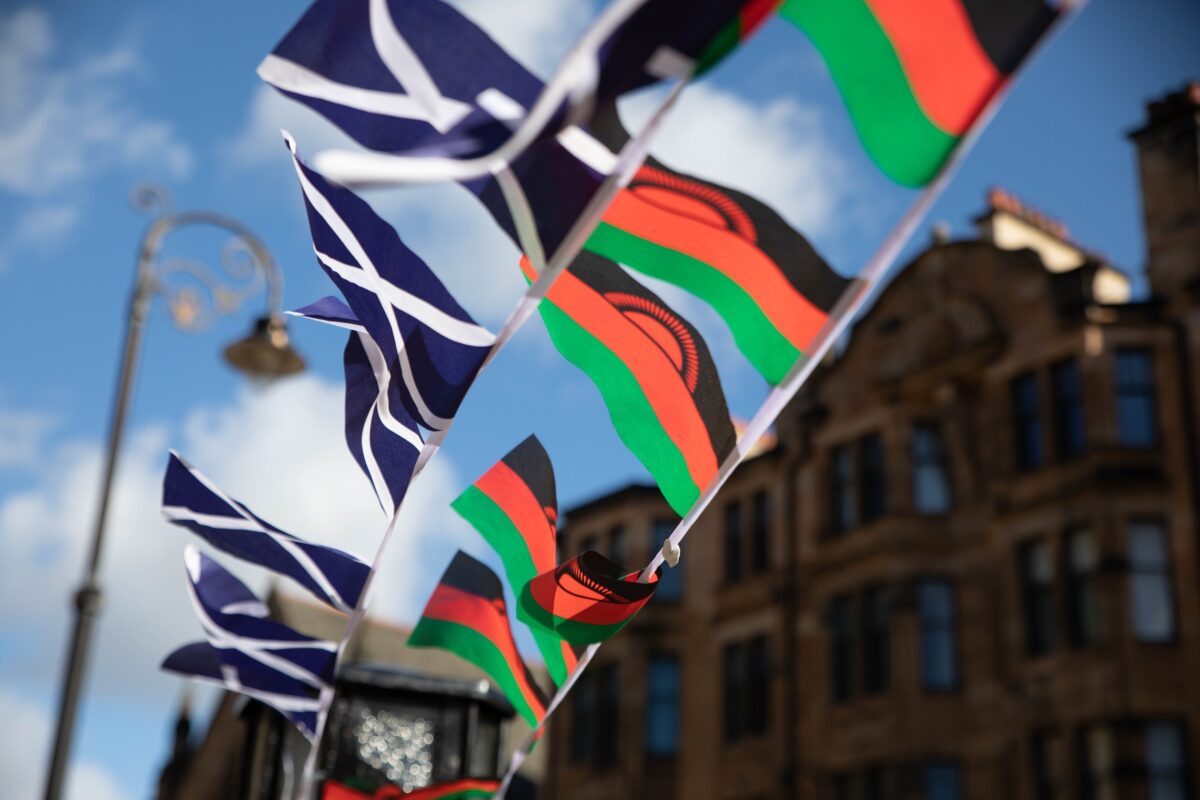Scotland and Malawi: Understanding our shared history
A session which digs into the history of Scotland-Malawi relationships, looking to deconstruct the ‘loan traveller’ narrative around Dr David Livingstone and highlight the roles and stories of those around him. To consider Scotland’s role in the colonial project as well the Scots who fought for Malawi’s independence. To include learning about the role of John Chilembwe and other Malawian freedom fighters and an assessment of how they are remembered today. To support critical reflection around the “160 years of friendship” narrative and listen to a range of different perspectives with regards the legacy of Livingstone and others. The session includes reflections over the manifest and latent elements of colonial legacy which live on in today’s contemporary relationship.
| Learning outcome | Learning intention |
|---|---|
| Critical reflection around the language of “discovery” and “exploration” | I can see that Livingstone didn’t “discover” Malawi because people already lived there |
| Basic awareness of Livingstone’s travels, the role that Africans had in this, and the unwitting enabling role Livingstone had in the colonial era that followed | I can see Livingstone wanted to do good, had many friends who helped him in Africa, but his maps made it easier for people to later control Malawi |
| Basic understanding of colonial rule in Malawi, Scotland’s role in this, and efforts to fight colonialism | I can see that Scotland was a part of the unfair and bullying systems, even if many Scots fought against these |
| Critical reflections of the latent and manifest legacy of colonial rule today | I can see that in some ways countries still have power over countries like Malawi, because of our past |
Teacher notes: Introduction to this session:
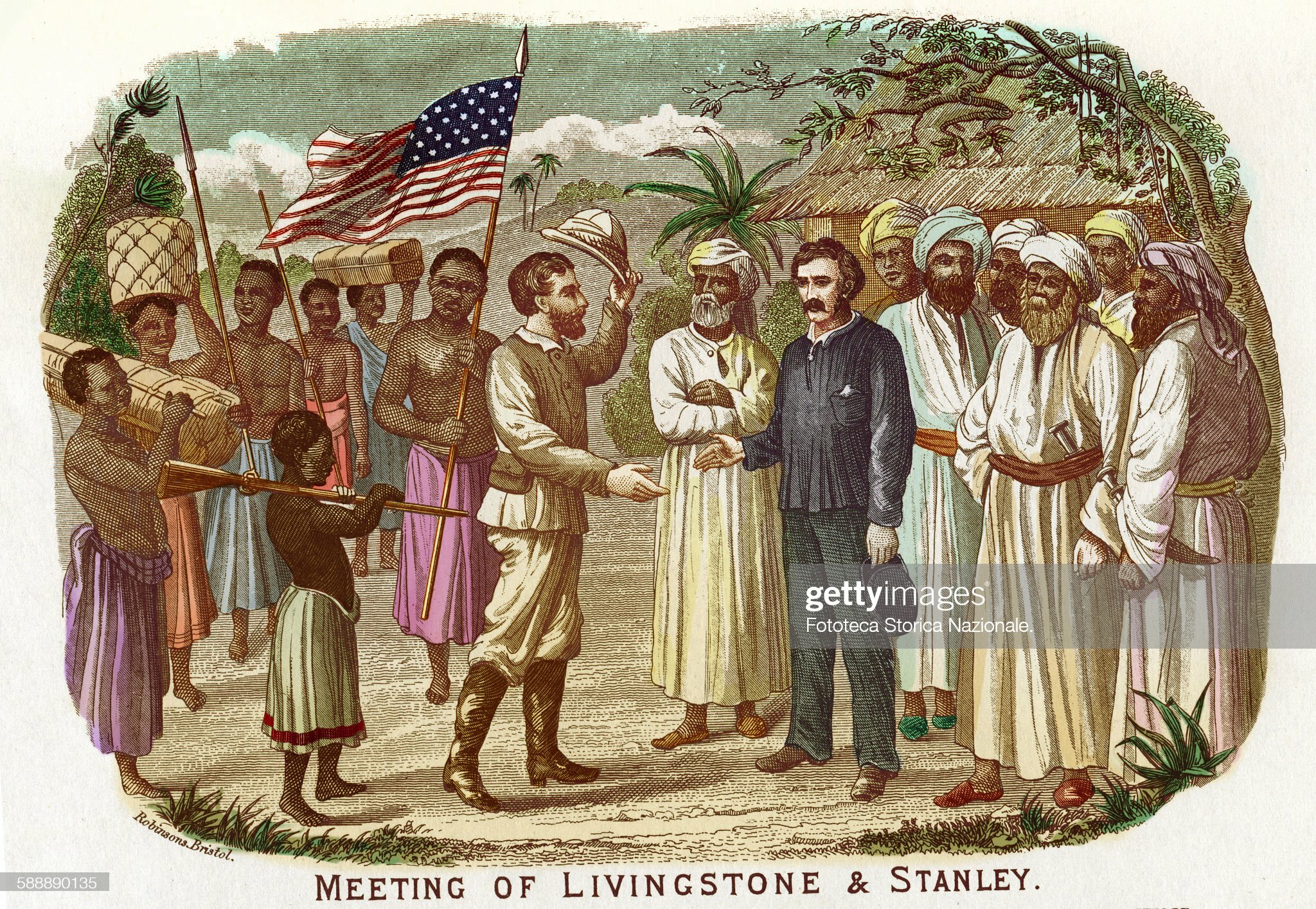
To build a strong school partnership based on mutual respect, a basic knowledge of one another’s history and culture is needed. These resources attempt to highlight the beginning of Scotland’s relationship with Malawi. How it began and what it means today. To an older generation, images and tales of David Livingstone have had an impact on our psyche and perceptions of the ‘dark continent’. However, today’s youth may not register with the phrase, “Dr. Livingstone I presume”. In order to critically evaluate the effects of colonialisation through commerce, missionary work and the Scrabble for Africa, students need to learn how it began and its consequences.
By exploring these themes and topics, your partnership can begin to gain a better understanding of Scotland and Malawi’s historical and current relationships.
This resource is made up of four sections:
- Discovery and Exploration
- Livingstone’s travels
- Colonial rule in Malawi
- The legacy of colonial rule today
There are several short online video links to trigger discussion.
We’re here to help, so if you want any support, advice or even someone to come and deliver this lesson for you, please just email youth@scotland-malawipartnership.org.
Image: Fototeca Storica Nazionale / Getty Images.
Do no harm:
In keeping with our principle of ‘do no harm’ we encourage teachers in delivering this lesson to be careful they do not unintentionally:
- Reinforce negative stereotypes about the global south.
- Leave learners with a sense that all interaction between the global north and the global south are inherently questionable – this is not the case.
- Leave learners scared to engage internationally for fear of being called out or getting the language wrong – it is important to speak of the benefits of internationalism and global citizenship.
- Deny that extreme poverty exists in countries like Malawi, that there is significant social injustice in the inequality between countries like Scotland and Malawi, and that there is crucial value in working together with countries like Malawi to call this out and look to reduce these inequalities.
- Encourage unnecessarily hostile, combative or uncompromising attitudes towards others, even those which might be guilty of elements of climate change deniers. Rather, look to build a depth of critical understanding, showing the complexity and encouraging learners to think of ways to challenge and change which are constructive and empathetic (discussing not shouting!).
- Vilify or perpetuate the lionisation (treat as a celebrity) of David Livingstone but rather explore his complex personality and motivations through a critical lens.
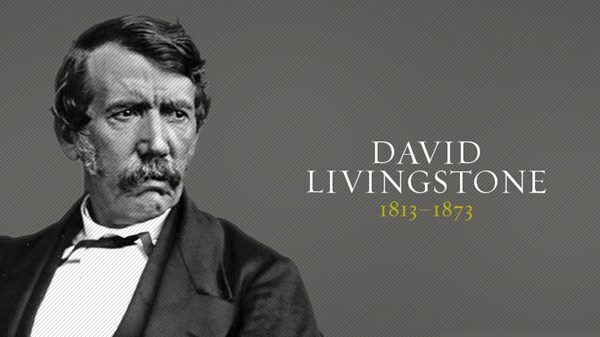
Brief overview of David Livingstone’s life:
There are several other resource links below for a more in depth dig into his life.
Dr David Livingstone was born in Blantyre in Scotland. He was a Scottish Missionary, Doctor, abolitionist and explorer and sought to bring Christianity, Commerce ad Civilisation to Africa.
David Livingstone was born in a small tenement flat in in Blantyre in Scotland. A site which can still be visited as part of the David Livingstone Museum. Visit their webpage for more information: David Livingstone Birthplace - Home Page (david-livingstone-birthplace.org).
He studied medicine and then trained to be a missionary.
His extraordinary life transformed him into one of the most celebrated British figures of the Victorian era. He hoped that the fame it would bring him would secure support for his fight against slavery.
Facilitate a class discussion around the questions below, looking to draw out the following points.
Q – What do the terms Discovery and Exploration mean?
- What imagines pop into you mind?
- Do the words mean the same thing?
- Discovery - the process of finding information, a place, or an object, especially for the first time, or the thing that is found
- Exploration - the activity of searching and finding out about something
- EXPLORATION | meaning, definition in Cambridge English Dictionary
- The Cambridge English Dictionary even uses this as its first example:
Livingstone was the first European to make an exploration of the Zambezi river (= to travel to it in order to discover more about it).
- Although Livingstone was often accredited for ‘discovering many places in Africa, this was not the case.
Additional resources:
A comprehensive 20 minute summary of Livingstone's travels, presented with a modern, realistic perspective of his 'accomplishments': David Livingstone: The Missionary Who Became a Legendary Explorer
Princeton University Library fact sheet on David Livingstone: Untitled Document (princeton.edu)
- Although Livingstone was often accredited for ‘discovering many places in Africa', this was not the case.
- Livingstone was one of the first Europeans to ‘explore’ parts of Africa.
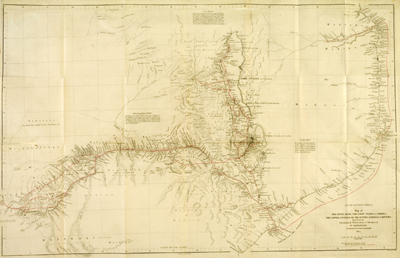
"Map of the River Shire, The Lakes Nyassa & Shirwa, The Lower Courses of the Rivers Zambesi & Rovuma, Based on the Astronomical Observations & Sketches of Dr. Livingstone" Untitled Document (princeton.edu)
In his lifetime, David Livingstone went on 3 extensive expeditions to the continent of Africa. Livingstone spent years calling for a stop the East African Slave Trade, writing letters and keeping accounts of everything he saw. These records inspired others to join the movement, helping to eventually end the East African Slave Trade.
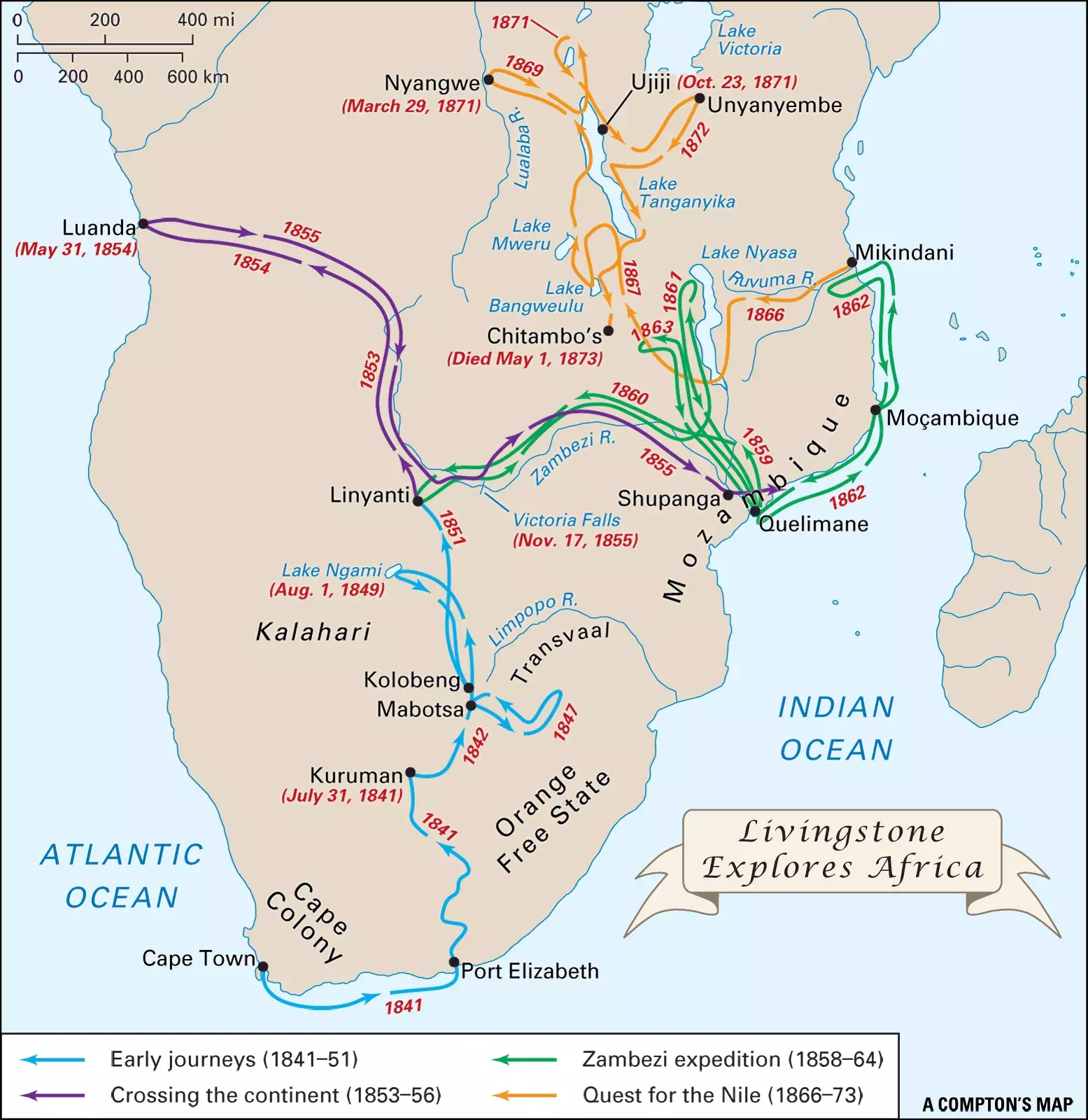
These journeys would not have been possible without the support of many other people.
Livingstone died in 1873 while searching for the source of the Nile. He was sixty years old and died in the village of Chitambo (in today’s Zambia). His companions found him kneeling beside his bed in the posture of prayer.
James Chuma and Abdullah Susi, Livingstone’s loyal African employees, buried his heart and preserved his body and carried it to the coast, where it arrived in February 1874 after a ten-month ordeal. Chuma and Susi - Wikipedia
Livingstone’s body was brought back to England, and he was buried in Westminster Abbey as a national hero.
One month after his death, Great Britain signed a treaty with the Sultan of Zanzibar, halting the slave trade in that realm. The infamous slave market of Zanzibar was closed forever. However, Livingstone’s three C’s of Christianity, Commerce, and Civilization ushered in the colonial era after his death.
The Scramble for Africa had begun. More about the Scramble for Africa: Events Leading to the Scramble for Africa (thoughtco.com)
Q1 – Did David Livingstone discover anything?
- Only in the European perspective. The lands he passed through were populated and indigenous societies existed.
Q2 - Should David Livingstone be revered today?
- David Livingstone was viewed as the sequential Victorian explorer. Why do you think was?
- Were David Livingstone’s aspirations for Nyasaland / Malawi realised?
- Slavery did eventually come to an end.
- Trading commerce was established.
- This benefited the Empire but not Malawians.
Additional resources:
Want to know more?
The David Livingstone Birthplace offers great education packages for schools, so please do not hesitate to visit their website or get in touch should you require more information. They would be more than happy to hear from you.
David Livingstone Birthplace - Home Page (david-livingstone-birthplace.org)
- Appreciate that due to the maps and journals he produced during his travels, many other missionaries and traders followed in his footsteps.
- This directly led to a colonial era that lasted for 75 years.
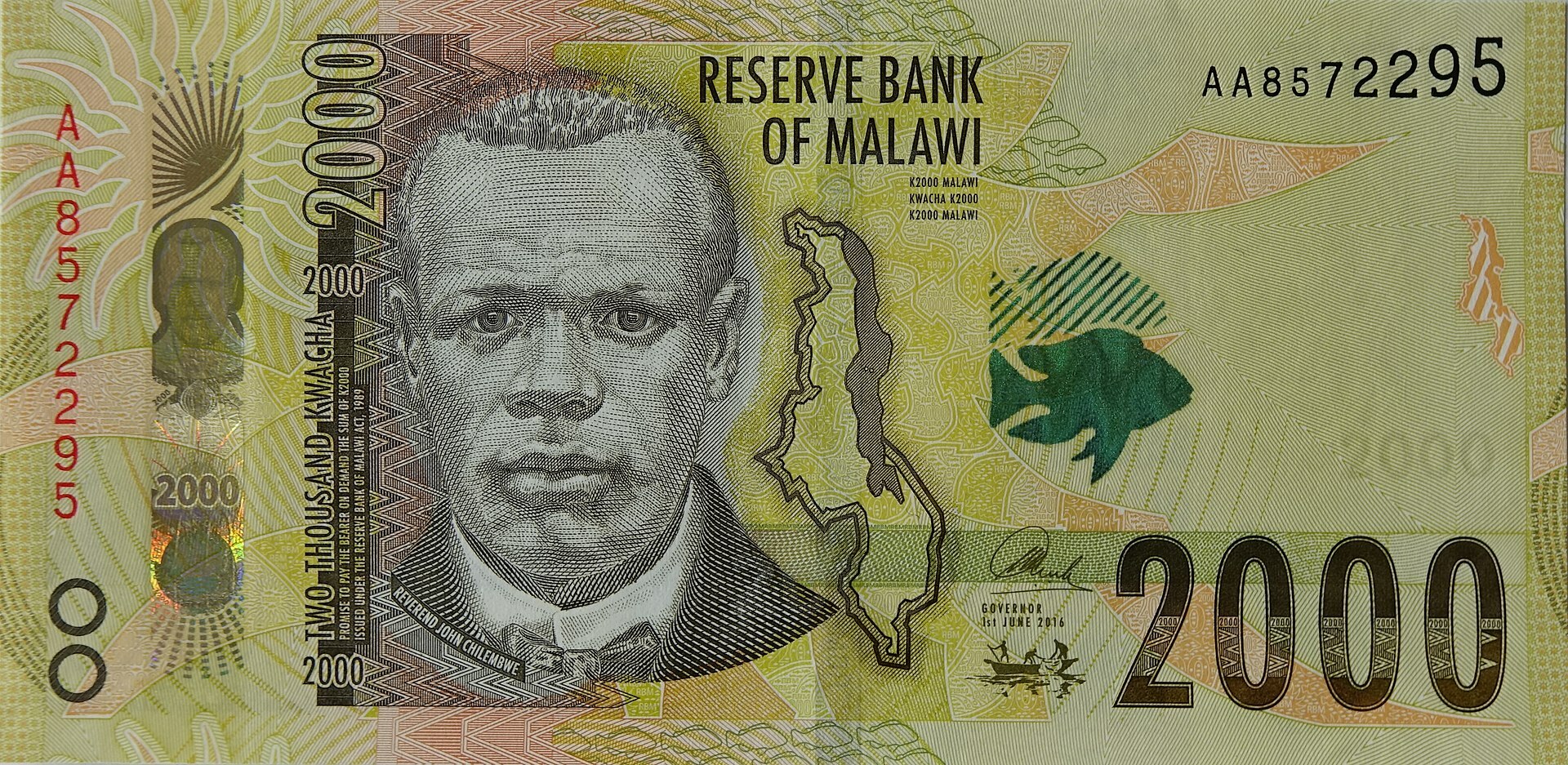
Just 16 years after David Livingstone’s death, the British government declared the land around Lake Nyasa a protectorate in 1889. The African Lakes Company, a company set up by Scottish businessmen working with Presbyterian missions in Nyasaland, African Lakes Corporation - Wikipedia and later the British South Africa Company established trading and plantations of coffee. Colonial rule, in Nyasaland and everywhere, was racist and wrong; it was underpinned by white supremacy, exploitation, injustice and suffering. This was especially so when, between 1953 and 1963 Nyasaland was part of the racist Federation of Rhodesia and Nyasaland, against the clearly expressed wishes of its population.
Many of the Scottish missionaries that followed in Livingstone’s footsteps became deeply identified with the Malawian community, learning Chichewa and Chitumbuka, pushing back against the racial injustice of colonial rule, and arguing against the incorporation into the Federation. However, they were by no means free from the prevailing racist assumptions of their day and a number of Malawians were, quite rightly, alert to elements of paternalism and racism that they experienced even in the best of them. Arguably, the very existence of the Scottish missionaries in Malawi provided the British government with a justification to maintain a presence in the region. [Learn more about how Scots both challenged racist colonial rule and were an integral part of it, in the joint Scotland-Malawi Black Lives Matter statement.]
However it was African ordinated ministers that began to question colonial rule. John Chilembwe was on such minister. John Chilembwe attended the Church of Scotland mission in 1890 and returned to Nyasaland in 1900 to found the Industrial Providence Mission (PIM).
In 1915, Chilembwe led a revolt against British rule, killing the white managers of a particularly harsh estate. He was revered as a national hero but killed a few days later by British forces. Today, he is featured on the MK2000 banknote. John Chilembwe - Wikipedia
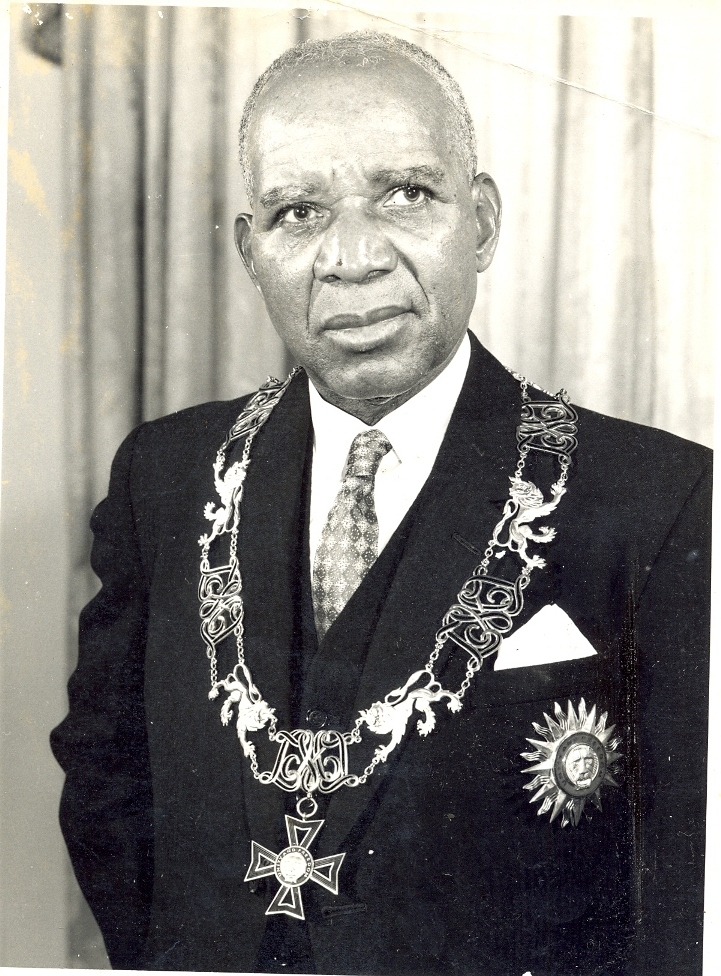
Hastings Kamuzu Banda – Malawi’s first president.
Dr. Banda took the Christian name of Hastings after being baptised into the Church of Scotland by Dr George Prentice, a Scot, in 1910, naming himself after John Hastings, a Scottish missionary working near his village whom he admired.
In 1944, Malawians established the Nyasaland African Conference, a political party which Dr. Hastings Kamuzu Banda took over in 1958, after returning from studying and working in the UK and US. He attended the University of Edinburgh and was subsequently awarded a Scottish triple conjoint diploma in 1944.
After violent clashes and the arrest of many pro-independence Malawians, Dr. Banda was release from prison and allowed to travel to London to negotiate independence with the British government.
Malawi finally gained its independence on July 6, 1964, and exactly two years later, Dr. Banda was elected President of the Republic of Malawi. Hastings Banda - Wikipedia
While this marked the end of colonial rule in Malawi, it must be acknowledged that Dr. Banda is not only remembered as Malawi’s first president. He went on to become known as one of the oldest dictators in the world who ruled for over 30 years.
Additional resources:
A video summary of the different phases of exploration, conquests and colonization of African territories by European powers, beginning from the mid-15th century. - Colonization of Africa - Summary on a Map
A more detailed description of Malawi’s colonial origins: Nyasaland Colony (britishempire.co.uk)
- Know that Scotland greatly benefited financially from Malawian’s colonial rule.
- Know that there were Malawian and Scottish voices against colonial rule in Malawi.
Many of the countries that Livingstone visited, particularly Malawi and Zambia, have places named after him even today. His work forged bonds between Scotland and many Sub-Saharan African countries, hence why Scotland has such a strong bond with Malawi today. Livingstone is warmly remembered by a great many in Malawi today for his work fighting the slave trade: but is this a consequence of education systems established by the British?
Scotland was an integral part of the British empire. Many questions are rightfully now being asked about the legacy of Scotland’s colonial history, particularly those individuals and institutions that benefited from the trans-Atlantic slave trade. For instance, there have been calls for David Livingstone’s statue in Glasgow to be removed because he worked as a young child in a cotton mill, working on cotton likely from plantations with slave labour.This video can prompt a discussion about how we view history through a modern lens.
GB News: Calls for David Livingstone statue to be removed from Glasgow
Q1 – What evidence of colonial history are visible in your local area? Who is commemorated in statues and memorials? Who were they and what led to their accomplishments?
- This will require research. Links to articles for Glasgow and Edinburgh can be found in the Relate resources section below.
Q2 - Why is it important to identify and acknowledge Scotland’s colonial history?
- There are many developments and luxuries that we enjoy in our daily lives that we take for granted. However, many are a result of the colonial past and the unseen contributions and sacrifices of those who lives under an oppressive colonial government.
Related resources and articles
The David Livingstone Birthplace Centre’s take on how his life created a ‘ripple effect’: David Livingstone - David Livingstone Birthplace (david-livingstone-birthplace.org)
Edinburgh statues: 11 key statues, buildings and street names with a history of slavery and colonialism: Edinburgh statues: 11 key statues, buildings and street names with a history of slavery and colonialism | Edinburgh News (scotsman.com)
Glasgow's statues have connections to the Atlantic slave trade: Glasgow's statues have connections to the Atlantic slave trade - BBC News
Great article about John Chilembwe’s legacy today: Malawi's John Chilembwe gets statue in London's Trafalgar Square: - BBC News
Historian, Rev Prof Ken Ross, tells us more about John Chilembwe and his fight against colonial rule on the SMP's Blog: Why Remember John Chilembwe?
- To question what legacy has David Livingstone’s travels left behind.
- Explore if the three C’s of Christianity, Commerce, and Civilization benefited the indigenous population in Malawi?

